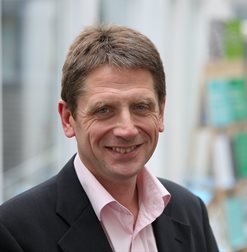Infrastructure
Sustainable infrastructure needs to be safe, multifunctional and resilient, supporting power as well as transport services, while minimizing environmental impact.
Transport infrastructure must be designed, constructed and maintained within tight budgets whilst delivering continuous service. Modern infrastructure needs to be resilient to increasing traffic and extreme weather. It must also be integrated with power grids both to exploit renewable energy and deliver charging infrastructure and as a consequence will be integrated to buildings and the wider built environment and energy infrastructure. It must also reduce the environmental impact of construction and operation while exploiting opportunities to enhance local environments.
This requires improved construction materials and optimised maintenance programmes, based on ‘smart’ sensor-enabled condition monitoring and interoperable, high frequency communications networks. Safety and operational risks need to be modelled and understood at network as well as project level to reduce user and worker casualties and build in resilience and recovery after hazards such as flooding or heat waves. Future needs, such as charging electric vehicles, managing water, and reducing noise need to be designed in and sustainability assessment systems integrated into decision making.
Theme Leads

Dr Tony Parry
Nottingham Transportation Engineering Centre, Faculty of Engineering
Capabilities
- Business models for EV Charging and EV Technology
- Adaptive and responsive intelligent infrastructure
- Infrastructure asset condition monitoring and support for asset decision making
- Smart and multifunctional structures and health monitoring solutions
- City information modelling and building information modelling
- Control of the flow of energy in indoor wireless communication
- Living Laboratories
Read our TMC capability statement (PDF) to find out more
Collaborations
- Architecture
- Civil and Electronic Engineering
- Fluid and Thermal Engineering Research Group
- Computer Science
- Mathematics
- Physics
Example Project: EV-elocity
EV-elocity is a research and development project looking at increasing the uptake of electric vehicles through helping consumers to monetise their investment using vehicle-to-grid (V2G) innovation.
The project is exploring new technologies, encouraging behaviour change and developing business models that will enable the sharing of the value V2G can bring to the grid, local and regional businesses and the consumer.
Our ecosystem of partners is looking to develop a new set of offerings using innovative V2G solutions such as dedicated and intelligent parking, loyalty programmes through new data patterns and inside airport individually targeted information.
The project aims to achieve economic, societal and environmental benefits such as promoting the uptake of electric vehicles by enhancing the case for “going electric” through the provision of a new revenue source for the owners; help reduce cost of energy for consumers; increase infrastructure resilience and security of energy supply; and support more sustainable life styles through encouraging behaviour change and raising awareness of energy.